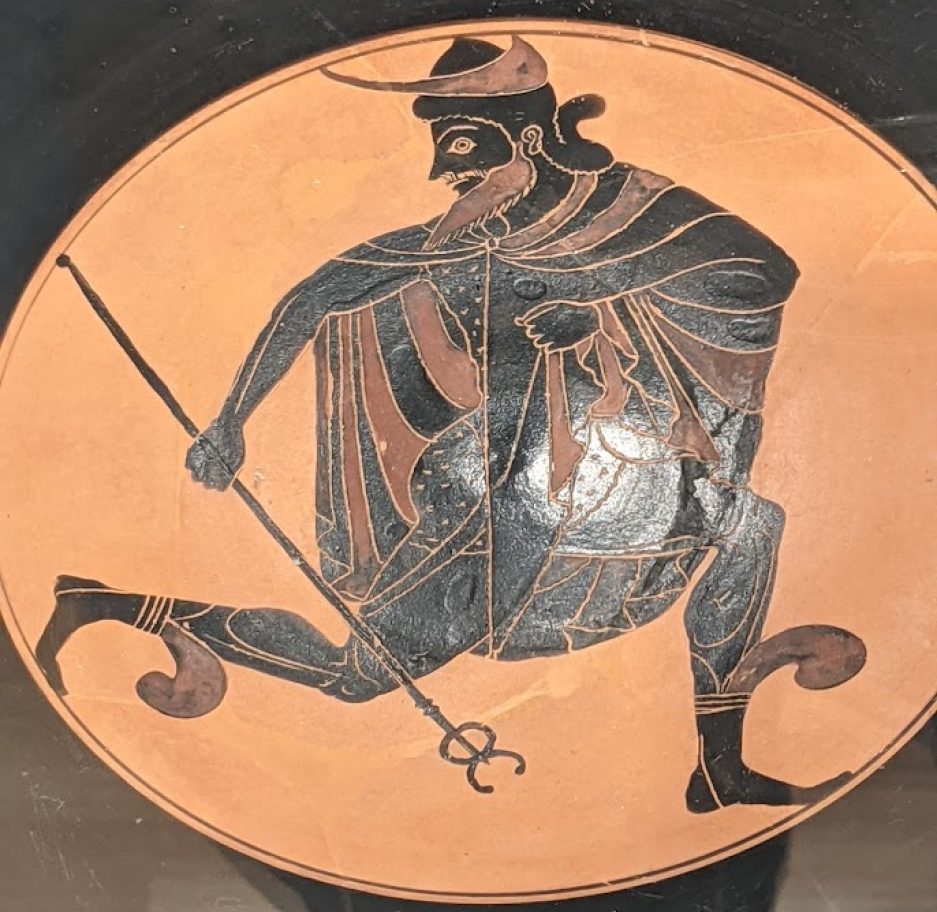That king of men, that mighty man of old
Locrian Ajax, in might and courage bold,
His spear he hurled and slew who’er he met
When on the plains of Troy the war was set
His feet were swift, and far outstripped them all,
Save Achilles who dragged Hector round the wall.
Now, once the walls were breached by the wooden horse,
Whose womb spilled forth at night the Achaean force,
Then through the streets of Troy fast the fires spread:
They drove before them a crushing weight of dread.
Cassandra, who had prophesied the fall,
In the temple did on Athena call.
And Ajax into the temple went and saw
Cassandra whom he took without heed to law.
Forth from the altar he dragged her by the hair,
From servitude he’d not Priam’s daughter spare:
To her cries he paid not the slightest heed,
Cast among the captives she would not be freed.
And here we see how Fortune, blind to all,
Raises up the one, and makes the other fall.
Cassandra who was born daughter of a king,
To the rank of slave did blind Fortune bring.
There’s no one so high the gods can’t bring them low,
Even to the just great Zeus measures woe.
For this Athena was filled with awesome rage,
No supplication could her wrath assuage;
Thus when Ajax did after Troy set sail,
She dashed all his ships in a fearsome gale.
But Poseidon, the god of earth and sea,
Set him safe upon a rock in his mercy.
But Ajax gripped by madness did arise
And all the gods in fury did despise:
He boasted that he did by his prowess save
Himself and thus he sent himself to the grave.
For Poseidon, the ruler of the main,
Would not countenance such pride and disdain.
Indignant did he hurl his trident and struck,
The rock and Ajax from safety did pluck.
It split top to bottom and the sea did flood
The place where Ajax in his pride had stood.
The waves submerged him and to some ocean beast
His life became a prey and a bloody feast.
